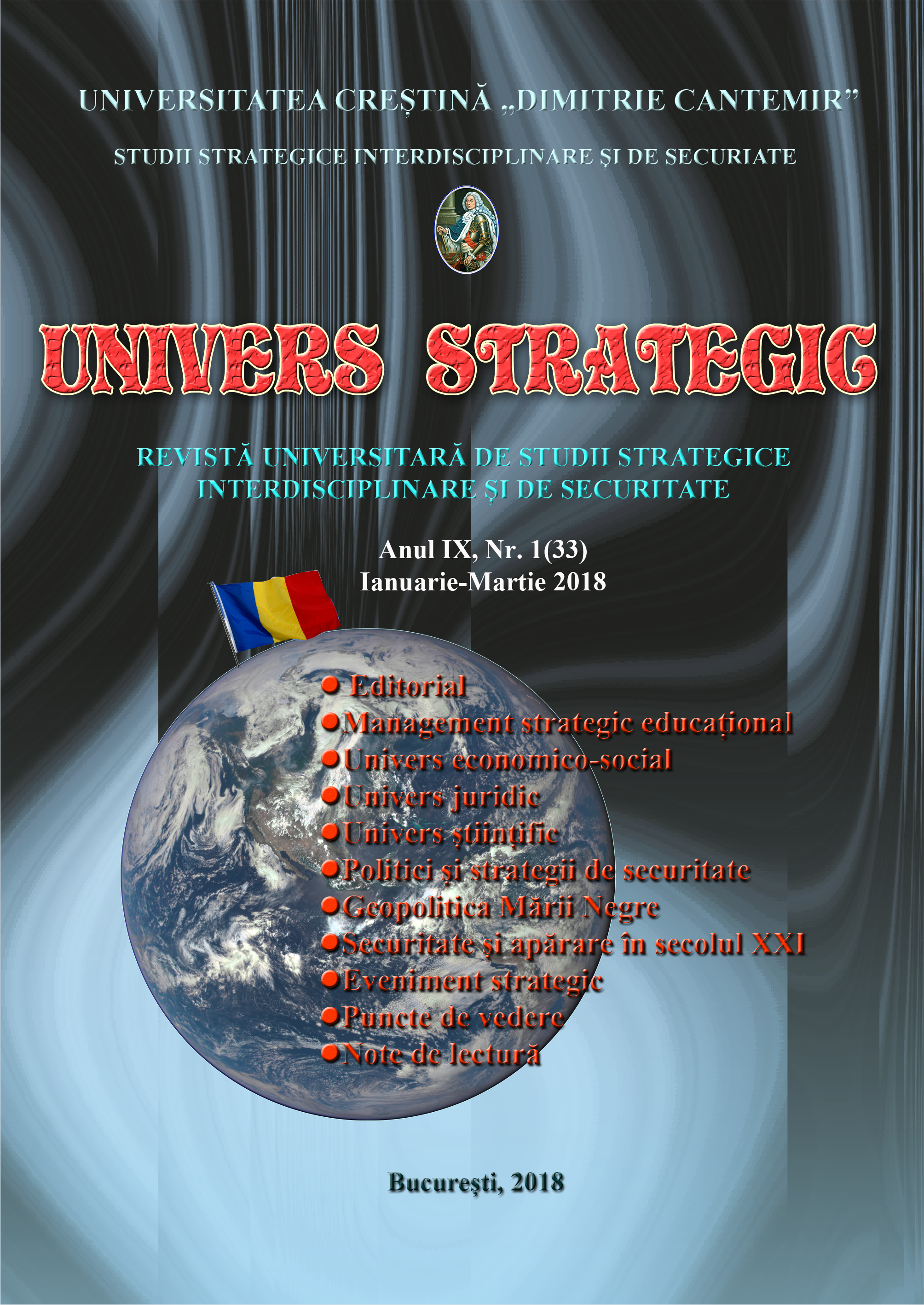PACEA ȘI IMPORTANȚA PRINCIPIULUI COOPERĂRII INTER-STATALE PENTRU PACE, LA ÎNCEPUTUL SEC. XXI
THE PEACE AND IMPORTANCE OF THE PRINCIPLE OF INTERSTAT FOR PEACE COOPERATION IN THE 21ST CENTURY
Author(s): Mădălina Virginia AntonescuSubject(s): International Law
Published by: Universitatea Crestina "Dimitrie Cantemir"
Keywords: peace; neo-westphalian order; inter-state cooperation; international law; nation-state; good-vicinity principle;
Summary/Abstract: We can say, regarding the neo-westphalian order at the beginning of XXI-st century, that the “peace” concept accumulates extended meanings. It is not possible to realize a concrete “state of peace” without fulfilling with good-faith, as states, some specific legal obligations assumed at international level (to cooperate and to respect the treaties, as participants). It is essential, also, for states, to keep in their juridical and political engagements the full meaning of “peace”, and not to see as ”a formal, obsolete obligation” the compulsory condition to contribute actively to preservation of an international and regional environment based on the respect of international law, especially, of principles of peace and good understanding between nations. The contemporary international system, in force from 1945, is based on the inter-connected obligations of states to respect the UN Charter principles and to give them a plenary value within the inter-state relations. The principle of good-vicinity, linked to the principle of cooperation between states and pacta sunt servanda, can bring an enforced legal ground, necessary for better way of functioning of the contemporary international order and also, targeted to avoid inter-state wars
Journal: Revista Univers Strategic
- Issue Year: IX/2018
- Issue No: 33
- Page Range: 148-161
- Page Count: 14
- Language: Romanian

